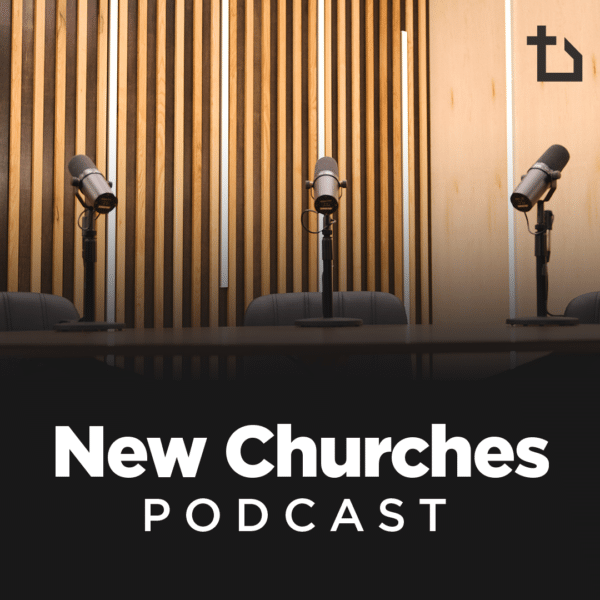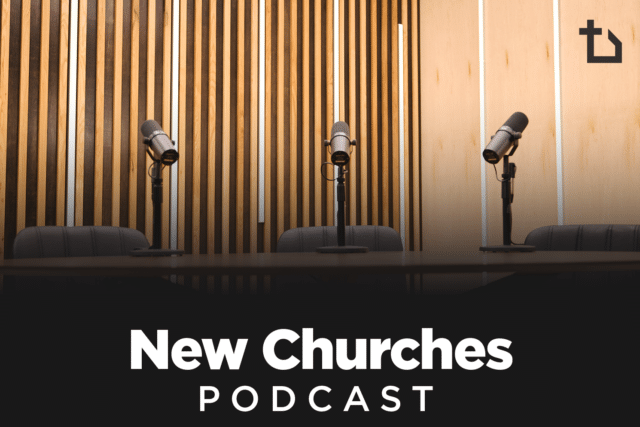New Churches Podcast | Season 1 | Episode 624
Where is Church Planting in the Bible?

Episode 624: While the words “church planting” don’t appear in the Bible, the entire context of the New Testament is entirely a church planting context. Host Ed Stetzer discusses the topic “Where is Church Planting in the Bible?” with Clint Clifton, the founding pastor of Pillar, a multiplying church in the suburbs of Washington, D.C., and NAMB’s senior director of resource and research strategy.
In This Episode, You’ll Discover:
- The biblical basis for the concept and practice of church planting
- Why new churches are so desperately needed in North America
- How to resolve the tension between the need for revitalizing existing churches and planting new ones
Shareable Quotes (#NewChurches):
- We want to say church planting is in the Bible but those words – “church planting” – are not in the Bible. So how is it in the Bible if it’s not in the Bible? @edstetzer
- The trinity is a true concept that we don’t get from one passage of Scripture that uses the word. It comes from an overview of the entire scriptures. Church planting is a lot like that. The context of the New Testament is entirely a church planting context. @clintjclifton
- It is important is to see how the disciples responded to the Great Commission – not just by individually evangelizing but by going and planting churches. @edstetzer
- If the normative expression of New Testament Christianity was tied up in church planting and today only 5% of American churches are involved in planting, what’s wrong and how do we fix it? @edstetzer
- I see pictures of church planting in verses like Titus 1:5, that says “I left you in Crete, so that you might put what remained into order, and appoint elders in every town as I directed you.” @edstetzer
- There’s clearly a pattern, particularly in the ministry of Paul. Once Paul has established a beachhead in a city, he would expect that those churches would then plant churches. This was the normative expression of New Testament Christianity. @edstetzer
- A lot of churches need to be revitalized, but people can spend countless hours, weeks, months, years revitalizing churches that don’t really want to be revitalized. It’s easier to birth a baby than it is to raise the dead. Stuck churches often want to stay stuck. @edstetzer
- If your members don’t know they’re being revitalized, then you’re not revitalizing. @clintjclifton
- I don’t think everybody should plant a church, but everyone can be part of church revitalization. @edstetzer
- Even when there are established churches, the apostolic impulse tells us to start something new and then we have higher percentage of people who are converts who are engaging people not otherwise engaged by the Church. @edstetzer
- There are models of church planting in the New Testament and we we talk a lot about models today. There are various expressions and models. even just in the New Testament. and not thinking about what we see going on around us today. @clintjclifton
- The reason that Jesus didn’t say in the Great Commission, “Go plant churches,” is because the church was a new concept. So Jesus said, “Go, baptize, teach and make disciples.” In essence saying, “Plant churches,” because that is the substance of what the local church does.” @clintjclifton
- I think about Jesus himself as the church planter. In Jesus’ gathering of the Twelve, all the elements of church existed, so in that way Jesus was a church planter. He planted a small church that multiplied a lot. Jesus himself is our true hero church planter. @clintjclifton
- I believe there is an explicit call to church planting in the New Testament, and that’s the Great Commission, because the apostles responded by planting new churches and because the substance of the Great Commission is the the essence of what the church does. @clintjclifton
- The disconnect is the Great Commission commands us to start new churches, so we would be disobedient if we weren’t involved in starting new churches. But beyond that, there is an obvious need for new churches. Eighty percent of churches are plateaued or declining. @clintjclifton
Helpful Resources:
- Interested in learning more? Check out our free Church Planting Primer”
- Are you ready to enroll in our Church Planting Masterclass?
- Please subscribe to the podcast
- Leave a rating and review on iTunes
Published on December 07, 2021



